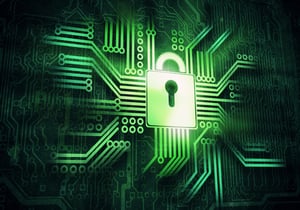What is a VPN and Why Should You Use One?
A VPN, or Virtual Private Network, protects users by encrypting their data and masking their IP addresses. This leaves ...
 A VPN, or Virtual Private Network, protects users by encrypting their data and masking their IP addresses. This leaves your browsing history and location untraceable to give you greater privacy when browsing the internet.
A VPN, or Virtual Private Network, protects users by encrypting their data and masking their IP addresses. This leaves your browsing history and location untraceable to give you greater privacy when browsing the internet.
In today's digital age, where online privacy is becoming increasingly important, using a VPN has become essential. With cyber threats lurking around every corner, a VPN provides an added layer of security by encrypting your data and protecting it from prying eyes. Not only does it keep your sensitive information safe, but it also hides your true IP address, making it virtually impossible for anyone to track your online activities. So whether you're connecting to public Wi-Fi at a coffee shop or simply browsing the web from the comfort of your own home, a VPN ensures that your browsing history and location remain completely anonymous.
It's easy to use a VPN on all of your devices, phone, laptop, PC or tablet. Once you've configured your VPN, it runs continuously in the background, protecting you 24/7.
What are the benefits of a VPN?
Secure connection from anywhere. One of the problems without browsing the internet in public is that nothing is private. If you use public Wi-Fi your browsing history, traffic, passwords, everything can be up for grabs. VPNs allow you to access the internet no matter where you are, securely and anonymously.
Another layer of protection against hackers. Cybercriminals will try to intercept traffic and steal your data by brute force attacks. By using a VPN, you safeguard yourself against these types of attacks.
Anonymous browsing. VPNs hide most of your browsing information from the outside world. Your internet searches are private, even from websites you visit from your IP address.
What are the downsides of using a VPN?
VPNs can slow your connection down. This is not always the case but if your VPN provider's servers are busy, you might see some lag in your connection.
VPNs are not free. A VPN is a paid, private service. If you want a reliable, reputable, unlimited service, you will have to pay for it. You want to pay for a reputable service because some VPN services log your data as it moves through their servers. For more information and some options for reputable VPNs, check out Forbes 10 Best VPN Services of 2023.
In conclusion, using a VPN is crucial in today's digital age to protect your online privacy and security. By encrypting your data and masking your IP address, a VPN ensures that your browsing history and location remain anonymous and untraceable. It provides a secure connection from anywhere, protecting you from potential cyber threats and hackers. While there may be some downsides, such as a potential slowdown in connection speed and the need to pay for a reputable service, the benefits of using a VPN far outweigh these drawbacks. So, if you value your online privacy and want to browse the internet safely, it's time to consider using a VPN.
Frequently Asked Questions: VPN Security
What is a VPN?
A VPN (Virtual Private Network) is a secure connection that encrypts your internet traffic and hides your IP address, making your online activity and location much harder to track.
Why should I use a VPN?
You should use a VPN to protect your privacy, especially on public Wi-Fi, and to prevent sensitive data like logins or business information from being intercepted by hackers or monitored by third parties.
Are there any downsides to using a VPN?
Yes. A VPN can sometimes slow your connection if the server is busy, and reliable VPN services usually cost money. Free or low-quality VPNs may log or misuse your data, so choosing a reputable provider is important.
Do I need a VPN on all my devices?
Ideally, yes. Using a VPN on your laptop, phone, and tablet ensures all your browsing and app traffic is encrypted, whether you're at home, in the office, or on public Wi-Fi.